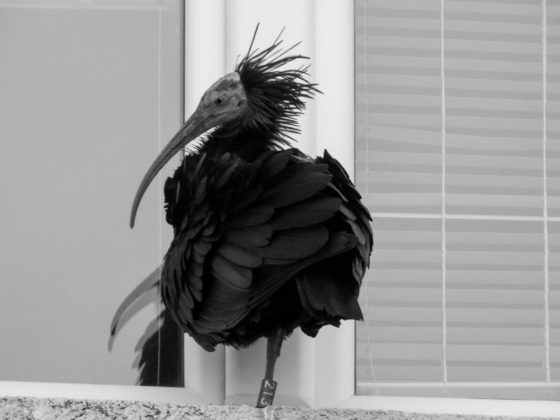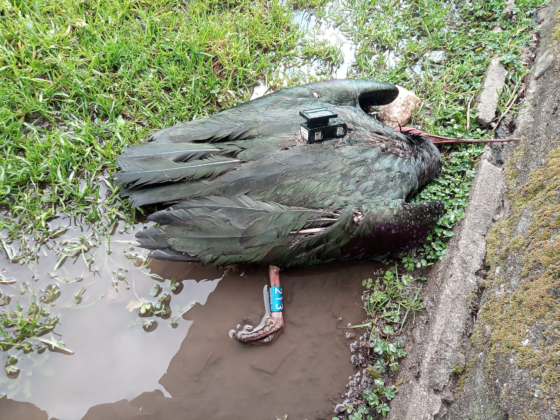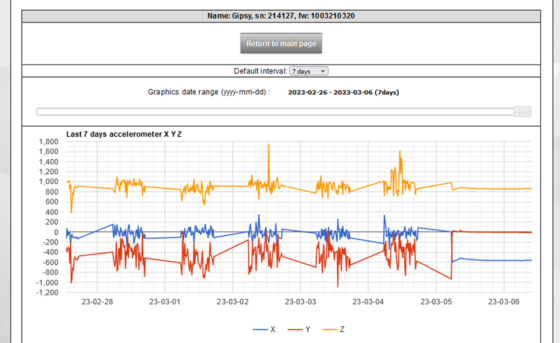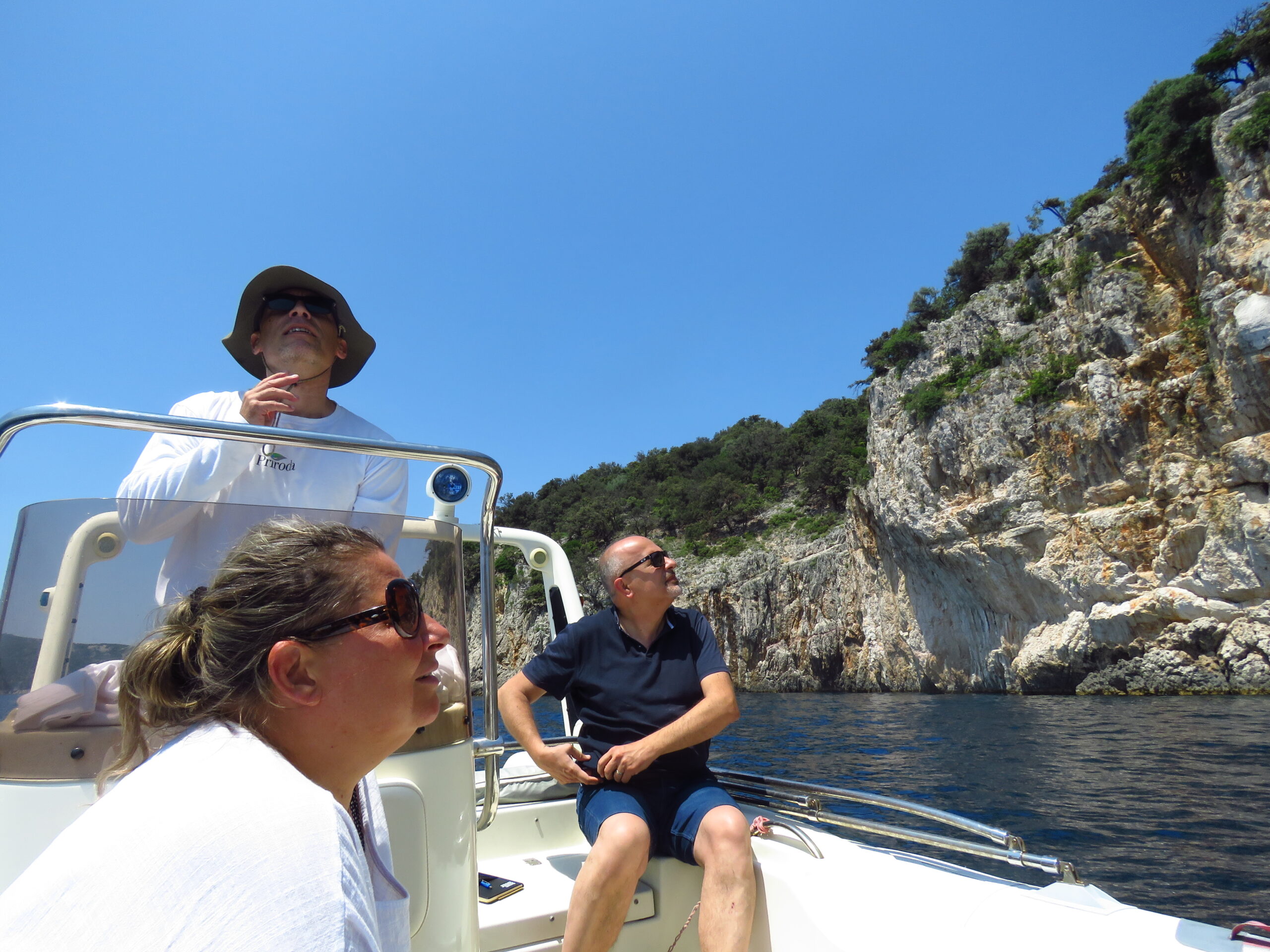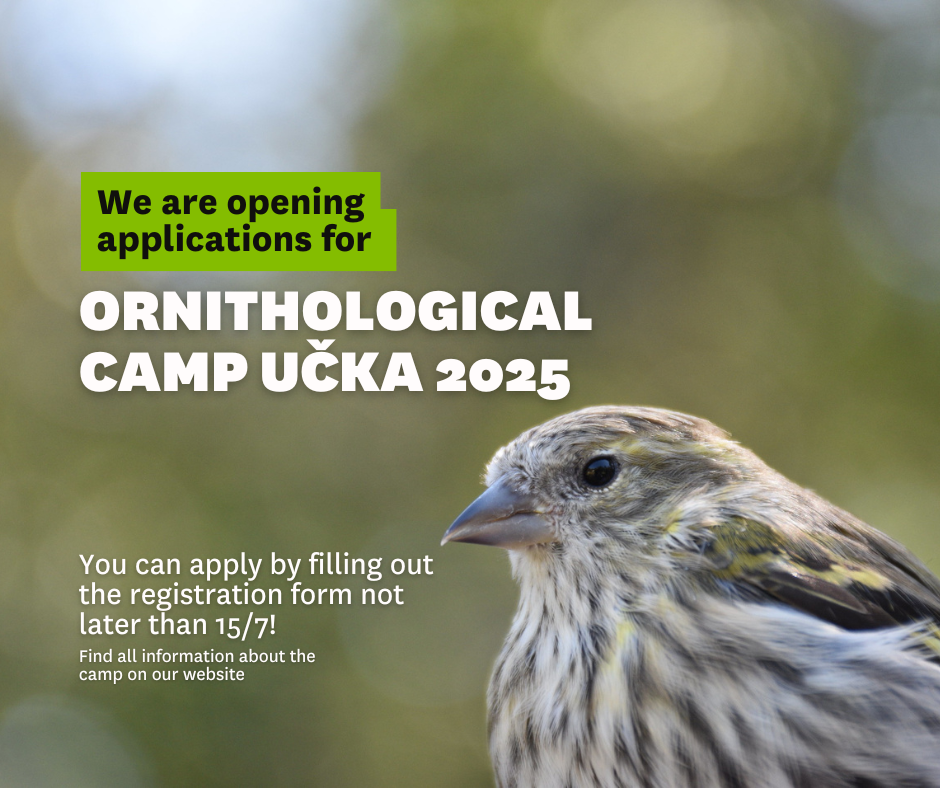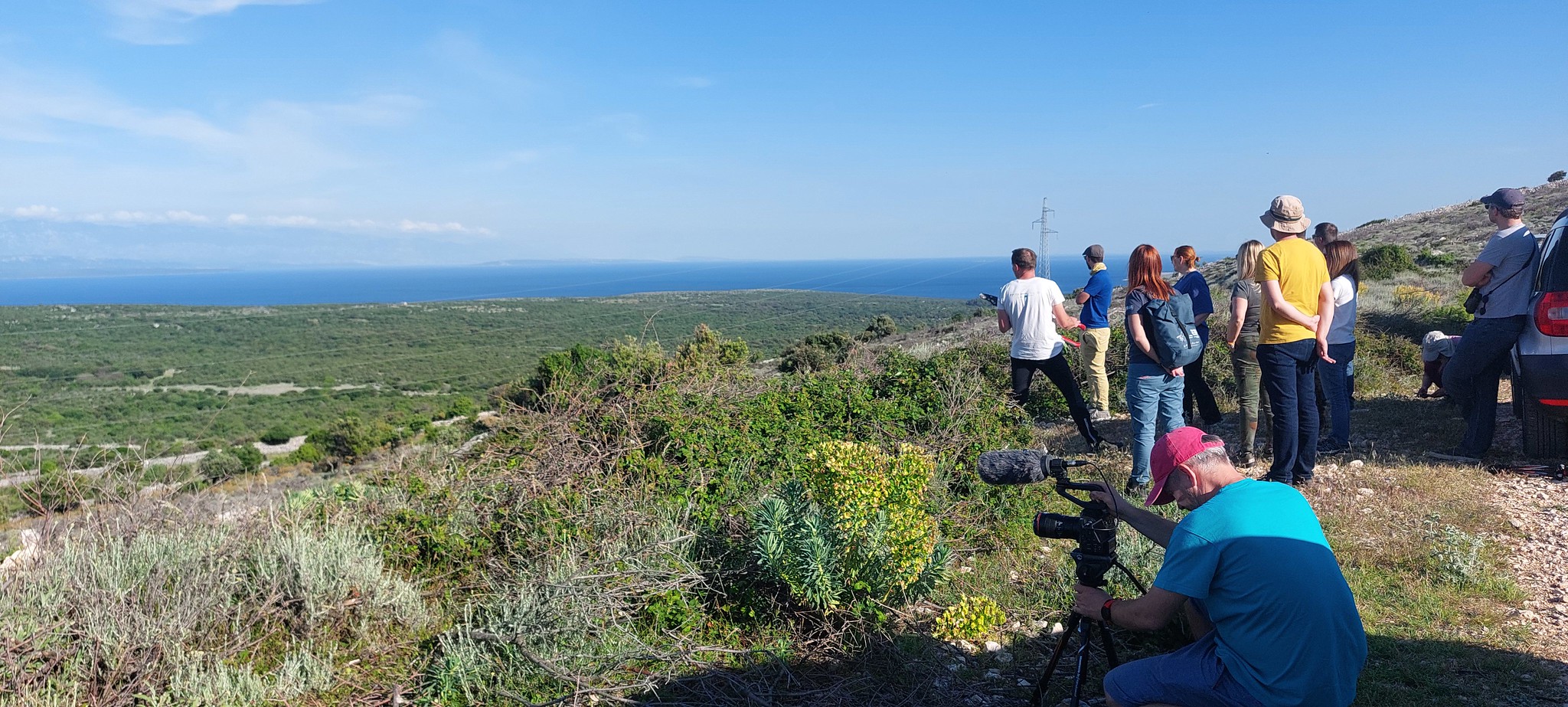Since this is not the first time that Northern Bald Ibises have died in Croatia under suspicious circumstances, we informed the police about this case and the criminal police immediately took over the case, as well as the veterinary inspector who took the bird and sent it for analysis
